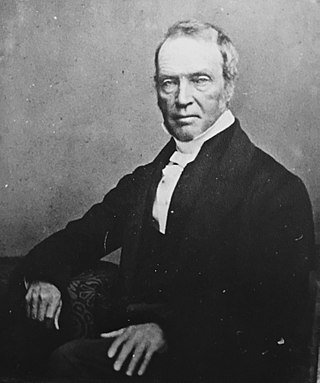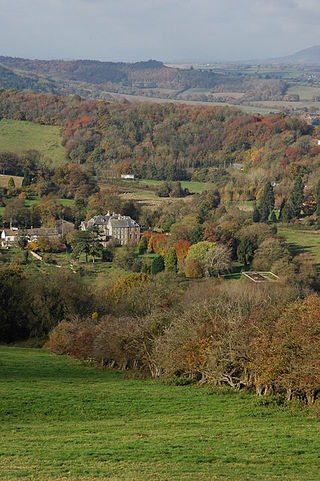Related Research Articles

In the civil service of the United Kingdom, His Majesty's Exchequer, or just the Exchequer, is the accounting process of central government and the government's current account in the Consolidated Fund. The term is used in various financial documents, including the latest departmental and agency annual accounts.

Irishtown is an inner suburb of Dublin, Ireland. It is situated on the southside of the River Liffey, between Ringsend to the north and Sandymount to the south, and is to the east of the River Dodder.
The Chancellor of the Exchequer of Ireland was the head of the Exchequer of Ireland and a member of the Dublin Castle administration under the Lord Lieutenant of Ireland in the Kingdom of Ireland. In early times the office was sometimes called the Chancellor of the Green Wax. In the early centuries, the Chancellor was often a highly educated cleric with knowledge of Finance. In later centuries, when sessions of Parliament had become regular, the Chancellor was invariably an MP in the Irish House of Commons. Walter de Kenley, Chancellor from 1292 until his death, was both a judge of the Court of Common Pleas (Ireland) and a distinguished military commander who gave good service against the Gaelic clans of County Wicklow.
Events from the year 1341 in Ireland.

The Court of King's Bench was one of the senior courts of common law in Ireland. It was a mirror of the Court of King's Bench in England. The King's Bench was one of the "Four Courts" which sat in the building in Dublin which is still known as "The Four Courts", and is still in use.

The Exchequer of Ireland was a body in the Kingdom of Ireland tasked with collecting royal revenue. Modelled on the English Exchequer, it was created in 1210 after King John of England applied English law and legal structure to his Lordship of Ireland. The Exchequer was divided into two parts; the Superior Exchequer, which acted as a court of equity and revenue in a way similar to the English Exchequer of Pleas, and the Inferior Exchequer, which directly collected revenue from those who owed The Crown money, principally rents for Crown lands. The Exchequer primarily worked in a way similar to the English legal system, holding a similar jurisdiction. Following the Act of Union 1800, which incorporated Ireland into the United Kingdom, the Exchequer was merged with the English Exchequer in 1817 and ceased to function as an independent body, although the Irish Court of Exchequer, like other Irish courts, remained separate from the English equivalent.
Marmaduke Coghill (1673–1738) was a member of Parliament for Dublin University, judge of the Prerogative Court and Chancellor of the Exchequer of Ireland.

Richard Wilson Greene PC, KC (1791–1861) was an Irish barrister and judge.

The Chief Baron of the Irish Exchequer was the Baron (judge) who presided over the Irish Court of Exchequer. This was a mirror of the equivalent court in England, and was one of the four courts which sat in the building in Dublin which is still called The Four Courts.
Sir Richard Ryves (1643–1693) was a seventeenth-century Irish judge who served for several years as Recorder of Dublin, and subsequently as a Baron of the Exchequer. He was briefly a Commissioner of the Great Seal.

The Court of Common Pleas was one of the principal courts of common law in Ireland. It was a mirror image of the equivalent court in England. Common Pleas was one of the four courts of justice which gave the Four Courts in Dublin, which is still in use as a courthouse, its name. Its remit as in England was to hear lawsuits between ordinary citizens.

The Court of Exchequer (Ireland), or the Irish Exchequer of Pleas, was one of the senior courts of common law in Ireland. It was the mirror image of the equivalent court in England. The Court of Exchequer was one of the four royal courts of justice which gave their name to the building in Dublin in which they were located, which is still called the Four Courts, and is in use as a courthouse.
Walter de Islip, Isleep or de Istlep was an English-born cleric, statesman, and judge in fourteenth-century Ireland. He was the first Chief Baron of the Irish Exchequer; he also held the offices of Treasurer of Ireland, Chief Escheator, and Custos Rotulorum of Kilkenny. He was a noted pluralist, who held numerous benefices. His career was seriously damaged by accusations of corruption and maladministration. He played an important role in the celebrated Kilkenny Witchcraft Trials of 1324.
Thomas de Montpellier, or de Monte Pessulano was a fourteenth-century Anglo-French judge and Crown official, much of whose career was spent in Ireland. He held a number of important lay and clerical offices including Dean of St. Patrick's Cathedral, Chancellor of the Exchequer of Ireland and, briefly, Chief Baron of the Irish Exchequer.

Thomas de Everdon was an English-born cleric and judge, who was a trusted Crown official in Ireland for several decades.

John de Troye was a Welsh-born Crown official and judge in fourteenth century Ireland, who held the offices of Chancellor of the Exchequer of Ireland and Lord Treasurer of Ireland. He was also a leading ecclesiastic, whose most senior clerical office was Chancellor of St. Patrick's Cathedral, Dublin. He was a notable pluralist.

Thomas Bache was an Anglo-Italian cleric and judge who held high office in Ireland in the later fourteenth and early fifteenth centuries. He served one term as Lord High Treasurer of Ireland and three terms as Chief Baron of the Irish Exchequer.
Robert Dyke, Dyck or Dyche was an English-born cleric and judge who held high office in fifteenth-century Ireland. He was appointed to the offices of Archdeacon of Dublin, Chancellor of the Exchequer of Ireland, Lord High Treasurer of Ireland, and Master of the Rolls in Ireland, as well as holding several Church benefices.
Jerome Ryves, M.A. was an Irish Anglican Dean.
Philip Savage was an Anglo-Irish lawyer and politician who was Chancellor of the Exchequer of Ireland.
References
- ↑ "Custodian Reports; Or, A Collection of Cases Relative to Outlawries, and Grants Thereon, as Argued and Determined on the Revenue Sides of the Courts of Exchequer, Both in England and Ireland" by Great Britain. Court of Exchequer, John Conroy p108: Dublin, J.Exshaw, 1795
- ↑ "Fasti Ecclesiae Hibernicae: The succession of the prelates Volume 1" Cotton, H. p454 Dublin, Hodges & Smith, 1848-1878